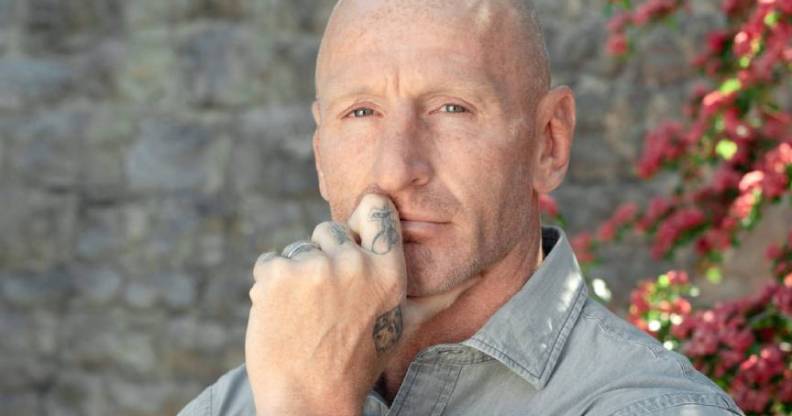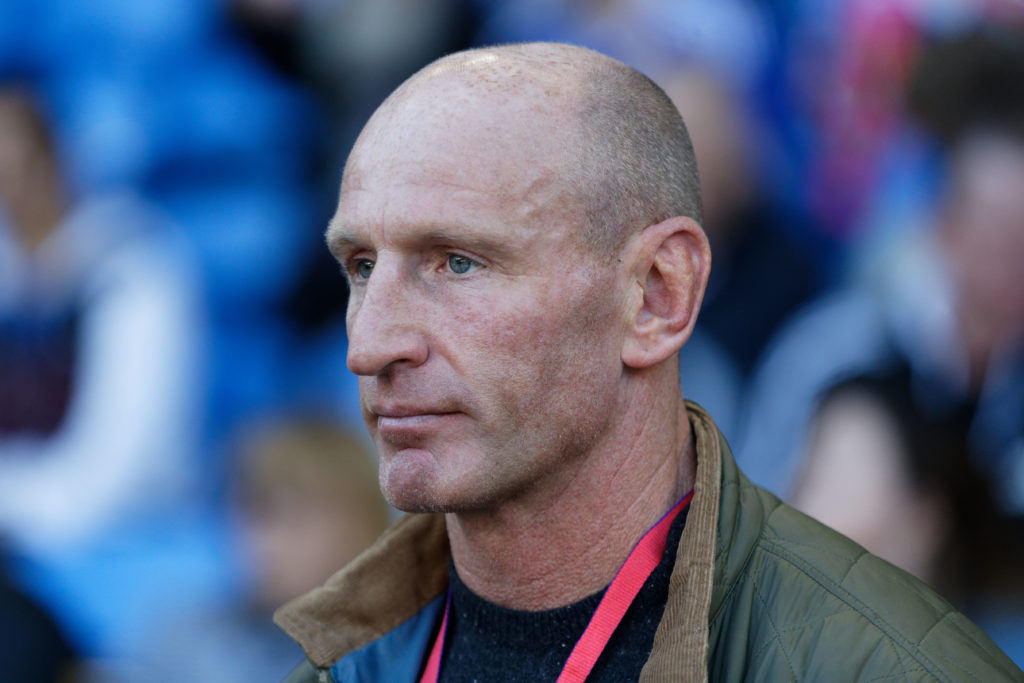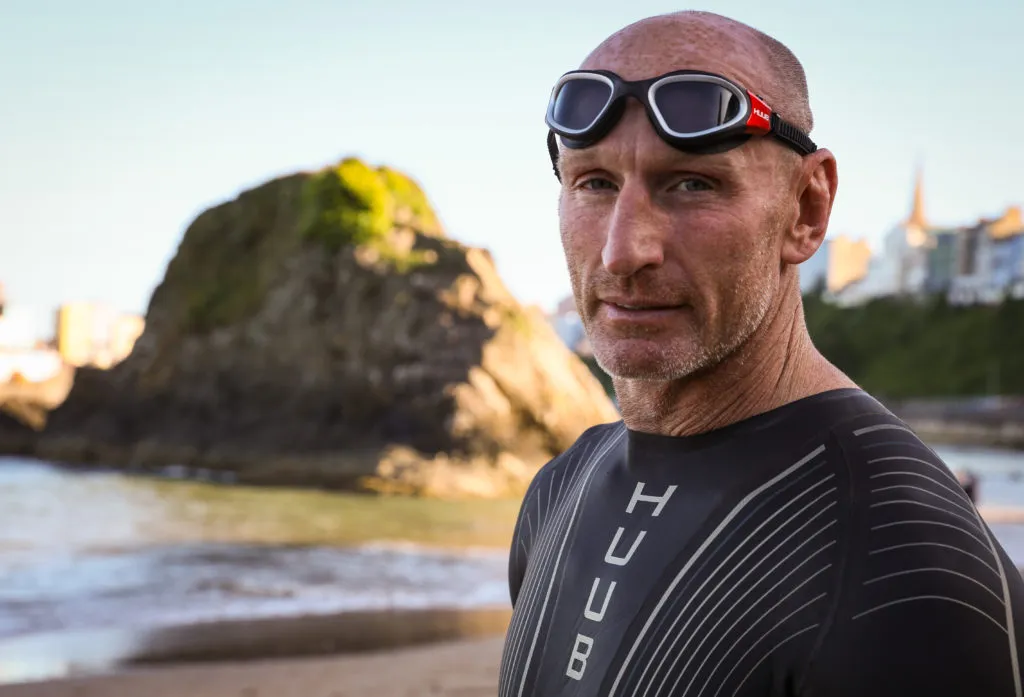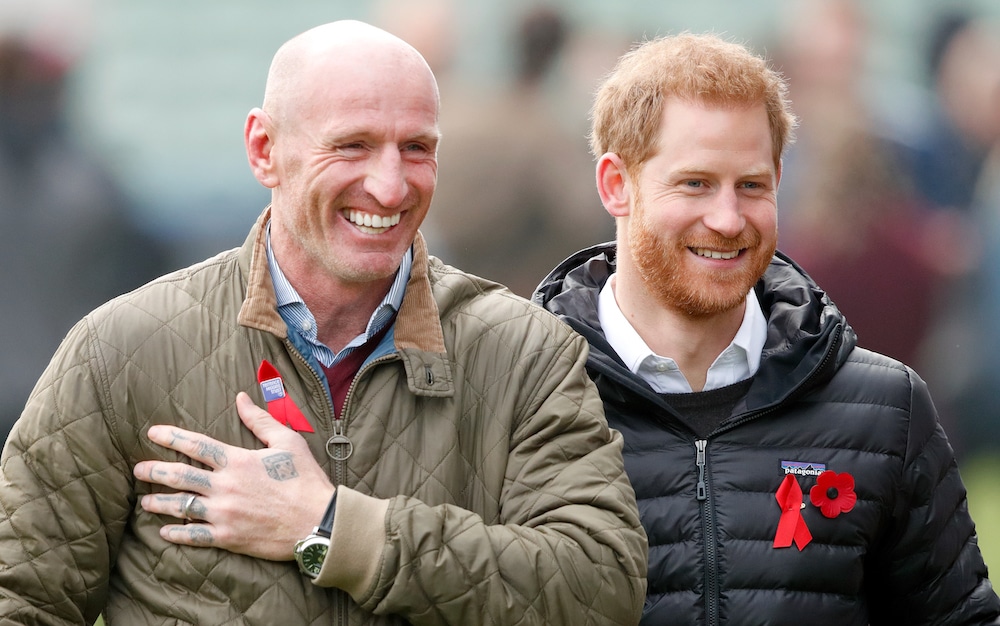Gareth Thomas on fight against HIV, ‘corrupt’ Qatar and why trans athletes deserve inclusion

Gareth Thomas says that even today, he still encounters homophobia. (Supplied)
Since coming out in 2009, Gareth Thomas has become one of the world’s fiercest advocates for inclusion in sports.
He was the first men’s rugby union pro to come out anywhere in the world, and said at the time that he wanted to normalise athletes being queer.
Thirteen years on, progress has been made, but things are far from perfect. In men’s football and rugby, LGBTQ+ players are still few and far between, while one of the world’s biggest sporting events, the men’s football World Cup, is about to be held in a deeply anti-LGBTQ+ nation.
“It always felt like a strange, verging on corrupt, decision to host it there,” Thomas tells PinkNews of the Qatar World Cup.
“I felt very uneasy about it. It makes everything we’re trying to do a contradiction. Why are we working so hard to create acceptance, but when it comes to the pinnacle of the sport, when more people around the world are watching, we say ‘put all that on pause?’.
“We say to players they can be themselves, yet Qatar opens its doors and says ‘come to our country but don’t be yourself’.
“You can’t open yourselves to the world and the diversity it holds and expect people of only one sexuality to arrive, and to reverse all the hard work that’s been done for equality.”

Gareth Thomas. (Athena Pictures/Getty)
One of the biggest issues in sports right now is trans inclusion. Around the world, transgender athletes are being denied access to sports by governing bodies, politicians, and are being demonised in the media.
Earlier this year, the Welsh Rugby Union banned all trans woman from competing in its female category – despite the fact that there are zero trans athletes in professional Welsh women’s rugby.
Thomas noted that often, these bans impact grassroots players, for whom sport can be transformative.
“I don’t understand fully what it is to be trans, but when we talk about sport, sometimes we just talk about elite sport. We always go to the extreme,” he says.
“But for a lot of people, sport gives you an identity. It gives you a sense of identity. It gives you lifelong friendships and having had my experiences as a gay man, being gay can be lonely. It can be hard to find friends who have the same feelings as you, and sport gives you those friends.
“That’s why sport should be open to trans people. It gives you the ability to share life experiences with someone who understands what you’re going through.”

Gareth Thomas complete an Ironman in 2019 to combat HIV stigma. (Getty/Huw Fairclough)
He adds: “Sport is so much more than winning or losing. It gives people experiences, reasons for living, reasons for staying healthy and socialising, reasons for leaving the house.
“I understand from my experiences and my trans friends that it can be difficult to find those things, and sport gives people the ability to find that, so why are we having a conversation about taking away those opportunities?
“They’re people that have the right to the same opportunities as anyone else, yet we feel that it’s unfair all of a sudden because we go to extreme examples.
“People don’t decide to transition because they want to be the best at a sport. You don’t understand transgender people if you think that that’s why people would go through that process.”
In 2019, Gareth Thomas revealed that he is HIV positive
In a video announcement, he explained how he’d been forced to share his diagnosis after a journalist threatened to out him (and did in fact out him to his family), and how he wanted to “break the stigma” around the virus.

Prince Harry, Duke of Sussex and Gareth Thomas attend a Terrence Higgins Trust event ahead of National HIV Testing Week, 2019. (Getty/ Indigo/ Max Mumby)
Today he dedicates much of his time to his Tackle HIV campaign, which has been supported by the likes of Elton John and Prince Harry, and is currently touring the country to show people how easy it is to get tested for HIV.
Of Harry’s involvement, Thomas says: “When you speak to him, it’s obvious that this isn’t just a continuation of his mother’s work. It’s a real passion for him. This subject can be a real minefield, but when you speak to him he has a real in-depth knowledge of this issue.
Gareth Thomas & Prince Harry, The Duke of Sussex – allies in the mission to tackle HIV stigma & end new cases by 2030, sit down for an exclusive chat this #HIVTestWeek with 1 message:
Get tested, know your status, live your healthiest life.
Watch now👉https://t.co/DFjBzQ0Yf5 pic.twitter.com/hzuT0TgMEx
— Tackle HIV (@TackleHIV) February 11, 2022
“When you have someone who arguably has one of the largest platforms, someone with such a wide-reaching voice, and he’s willing to use that voice to help people and motivate people in this community, then that’s going to travel far, and reach people that maybe wouldn’t normally have this conversation.
“As someone who’s part of the HIV community, having someone like that as an ally is a huge motivation for us as a campaign, because we know that there are powerful people out there that want to listen to us and give help to us.”
One of the biggest parts of the campaign is bringing the public understanding of HIV up to date. This includes telling people about the scientific breakthroughs made in the past few decades, which he says means “that HIV is no longer a death sentence”.
“It’s really important that we address the misinformation that justifies the stigma and discrimination,” he explains, offering a prime example.
“People have an assumption that it’s only gay or bisexual men, when statistically that isn’t true.”
“In 2020 there were more new cases of HIV identified in straight people than there were in gay or bisexual men, and that was the first time in a decade that had happened. Globally, 54 per cent of people living with HIV are women.
Changing public perceptions and tackling the misunderstanding and stigma related to HIV is at the heart of our campaign.
We can only achieve this with your help to educate others. To find out more about the facts of HIV so that you can pass them on, follow us here 👇 @ViiVHC pic.twitter.com/peCIUeTgPb— Tackle HIV (@TackleHIV) October 25, 2022
“This is not just a campaign to make my life better. I’m not just campaigning for me. This is for everyone. The reality is anyone can contract the virus, and the only way to know your status is to test, but stigma is a barrier to testing.”
His tour is also helping people by offering discreet testing – either in a “safe space on the top floor of the bus” or through an at-home kit people can take away.
“We’ll happily go for a health check even if nothing’s wrong with us, but when it comes to your sexual health, we’re very stigmatised about it, we’re very secretive,” he says.
“What I want to emphasise to people is the ease of taking a test. You can do it in your own home and it doesn’t cost anything.”
Tackle HIV, a campaign led by Gareth Thomas in partnership with ViiV Healthcare and the Terrence Higgins Trust, aims to tackle the stigma and misunderstanding around HIV. Visit tacklehiv.org and follow @tacklehiv.

